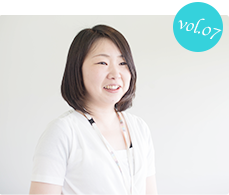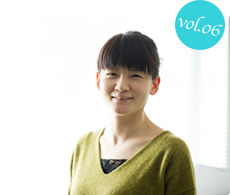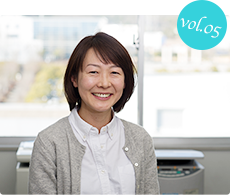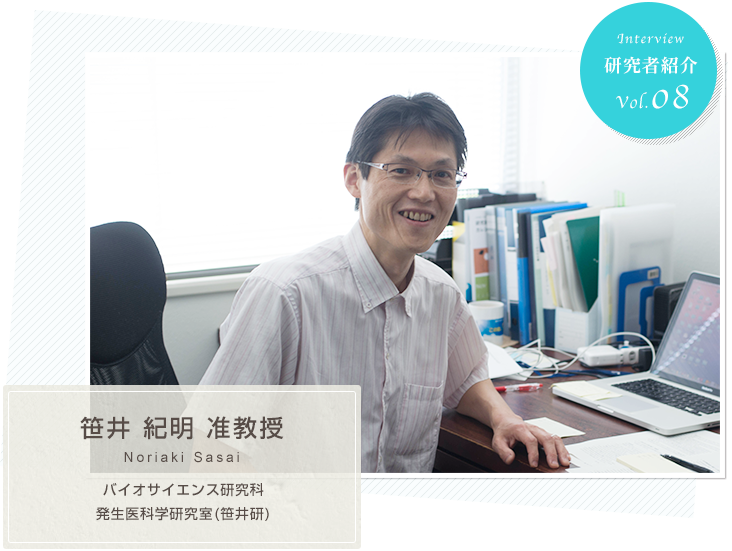
![]()
Born in Osaka, Japan, he graduated from Kyoto University in 2001. D. (Natural Sciences). Specializes in developmental and cell biology. He studies the mechanisms of organ formation using model animals such as chickens and mice and stem cells.
Why did he become a researcher?
There are many professions and jobs in the world that "only a man can do," and a researcher is one of them. To do research, you need originality, ideas, brains, physical strength, perseverance, sensitivity and insensitivity, luck, and many other things. That is why I chose to become a researcher.
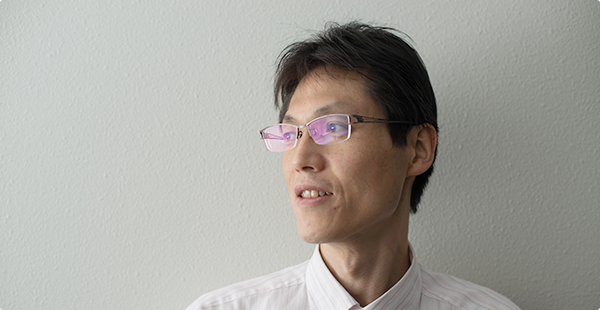
Daily life
I have a wife and two children of elementary school age, so my morning starts with working with my wife to prepare breakfast, do laundry, and send the children to school. After that, if I am not traveling on business, I spend the day at the university conducting experiments, meetings, discussions with staff and students, lab meetings, and so on. Occasionally, I have to pick up my children from school or attend elementary school events, so I have to change my schedule a bit to accommodate these events. The elementary school has a surprisingly large number of events, especially this year when I am a member of the PTA Public Relations Committee, so I try to make time to attend these meetings on a regular basis.
In the evening, my wife comes home first and eats dinner with the kids, and I watch them study for a while and then continue working after they go to bed. During the day, I prioritize the things I can only do at the university, so I work on papers, applications, and emails at home. Some days it takes me until midnight, but I usually try to go to bed around midnight.
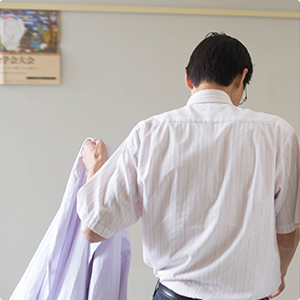
Balancing life events and research
There is no absolute solution to balancing life events such as raising children with research and work. In my case, my wife and I both worked, so especially when our child was young, I often struggled with how to balance my work schedule with daycare pick-up and drop-off times, as well as sudden illnesses and other unexpected events. On the other hand, our youngest child was born while we were living in the UK for research, and because I was allowed to work reduced hours for about two months immediately after my wife's birth, I was able to raise my child in a foreign country without seriously affecting the progress of my research. I am very grateful to my former supervisor for allowing me to work such irregular hours, and at the same time I wish that a similar system would become more common in Japan, despite cultural differences.
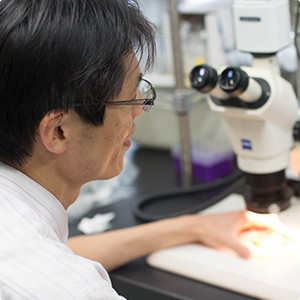
After arriving at NAIST, my wife and I are still raising our children together at home, so the AA system at NAIST has been a great help to us in our research and work, for which I am deeply grateful. On the other hand, the support needed by staff members raising children varies depending on the number and age of their children. Also, some staff members may be couples working alone, or there may be families where one person is raising children. We hope that in the future, more support will be provided to meet individual needs.
Fortunately, NAIST has many researchers of different generations, from senior researchers to young researchers raising children, as well as many female researchers, and we are well prepared to accept researchers from different backgrounds. This is definitely a driving force for research in our university. I hope that students will see many model cases and get some inspiration for their own future. Now that I am a staff member of this university, I would like to use my past experience to contribute to the development of an environment in which the members of my laboratory can maintain a balance, however small, between their own careers and lifestyles.
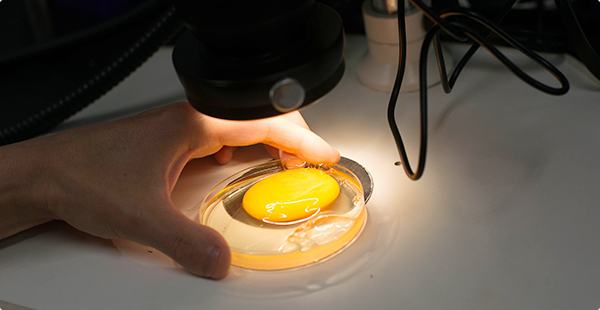
To those who aspire to be researchers
Research and experiments often do not go as expected, and many people, including myself, have experienced the overwhelming feeling of trying to manage it. Also, as I mentioned at the beginning, it is difficult to find a substitute for research itself, because a researcher is doing something that "only he/she can do". Therefore, from a work-life balance perspective, being a researcher is not a good choice.
However, it is possible to build trusting relationships with those around you and ask for help after giving full explanations. It is also true that when you encounter difficulties in your research, having a family gives you the strength to face and overcome them. Of course, having a family and children are not the only things that make us happy; enjoying hobbies, traveling, and honing our special skills are also things that make life worth living. In this way, I believe that the secret to maintaining a positive attitude and motivation for research is to always be aware of and create "something" outside of research.
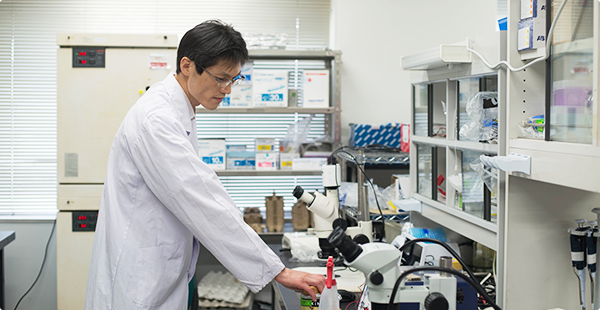
(June, 2017)

-
2017.6 updated
Division of Information Science
-
2017.3 updated
Division of Biological Science
-
2017.3 updated
Division of Biological Science






